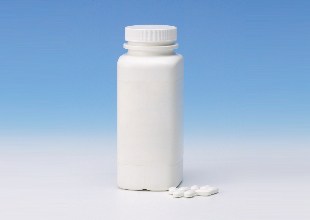While manufacturers rely on expansive claims to sell their product, you should be less enthusiastic about such claims.
It is very important to see beyond the hype of a ‘breakthrough’ or ‘magic’ product, in the same way we are skeptical of a ‘miracle cure’. Be open-minded, but trust our instincts! Many products are sold by buzz words claiming that they detoxify, purify and/or energize. Also be aware of concepts that are vague and impossible to measure. Some others claim to be more potent, contain MEGA doses or provide a cheap alternative. Even the term ‘natural’ is often used to advertise rather than inform.
Do not be swayed by advertising. What we choose are the ingredients not the wrapper. Try making a shopping list. If we can’t write what we want, we really shouldn’t be shopping for supplements. It begins by understanding what we want to try, learning about it and getting advice. When we go to the pharmacy or the health food store, we should ask questions. If they don’t know how something is or what’s in it, we need to find answers elsewhere. One way is to read up on the options available to us.
Important steps to evaluate each product include:
- Read labels carefully and research products where possible. Product labels tell us which nutrients are included and the amount contained in each dose.
- Critically evaluate claims of treatment success. Look at the ‘track record’ of the compound; what is the exact impact the compound has on the body in clinical trials. Gather information from a variety of sources and evaluate the information carefully. It is often useful to get help (we have tried to help in this book but there are many professionals out there who can tell you a lot more). Even though supplements have not been proven to slow the aging process or extend life, there is enough promising scientific evidence (in animals and other life forms) to support that they might have this ability and who has the time to wait and see whether generational studies will show conclusively that they do the same thing in humans as they do in animals? Somewhere along the line we have to take an educated guess. The trick is the educated part, not the guess work.
- Look at the cost. The most expensive is the one we put in the cupboard and never use. But the super cheap ones in the dump bins may not give us what we bargained for. Some of the best selling products are best selling only because they are cheap, not because they contain quality ingredients or actually work. Cut price products should be questioned why they are produced or sold so cheaply.
- Look at our budget. Taking a range of supplements can be a major spend over a long period of time so it is best to plan well. Look at our budget for supplementation. No point in being ad hoc. Put our list together, know exactly why we’ve selected these (remind ourselves every now and again) and budget for these.
- Look at the dose we are taking. For nutritional supplements there is an RDI, which gives us an idea of how much we need on average to prevent deficiency. This is not the same as the amount you personally require to maintain, and stay in peak condition (which can be much higher). As a starting point to maintain good health, choose to take a dose that falls within the lower end of the therapeutic range. To correct a deficiency we will need to take a bigger dose, in the middle to upper dosing range. Once our levels have optimized, we can maintain them with foods rich in the specific nutrient and/or a maintenance dose.
- Try to avoid the hype of ‘megadoses’ that provide vast excesses on our recommended daily intake. This also lulls us into a false sense of security when missing doses or taking supplements intermittently. This is different for stored (fat soluble) vitamins like vitamin D, where large doses such as supplied by a good dose of sunlight can get us though the darkest winter. However most advertised ‘megadoses’ are usually selling water-soluble vitamins and the greater part of these tablets rapidly ends up in the toilet.
- Look at how they are stored. Just as in food, many supplements lose their value the longer they are stored, especially in hot and humid places, such as in the bathroom. Throw out the old and expired supplements in your cupboard.
Last Reviewed 02/Mar/2014
Dr Merlin Thomas
Latest posts by Dr Merlin Thomas (see all)
- How to increase DHEA levels - 28/09/17
- Testosterone supplement benefits & risks - 11/07/17
- Health effects of tea & coffee - 10/07/17
